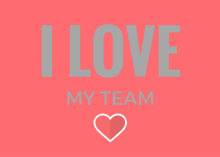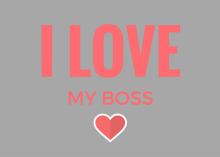Selection interview
Interaction between two or more people, one of whom performs an interviewee role and the other an interviewer role, where information is obtained through questions, demonstrations, simulations or any technique that allows evaluating a candidate for a job position.
There is no single criterion for conducting an interview, it depends on the method used by the interviewer. The main objective of the job interview is to determine if the candidate is suitable for the position, for this reason it is advisable to:
- Make the company known and inform the interviewee about the conditions of the job.
- Know the professional profile of the candidate.
- Know their personal self.
- Check the compatibility of the candidate with the work environment of the company.
- Evaluate whether the interviewee's skills are ideal for a correct development of the position.
Interviews can be classified according to different criteria.
Depending on the number of participants:
- Panel. A set of interviewers to a single candidate.
- Online. Several interviewers from different positions within the company interview the candidate one after another.
- Group dynamics. A group of candidates are faced with a challenge posed by the recruiter. In this type of process we can distinguish the problem-solving, creativity and leadership abilities of the interviewees.
Depending on the format:
- Structured. In this format, everything is programmed and studied. All candidates will go through the exact same process.
- Free. Although the candidate's profile and job requirements are clear, the interview is carried out, as the name suggests, freely and improvised.
- Mixed. It is considered the most complete, since it is a combination of the two previous ones. On the one hand, open questions where the candidate's improvisation reigns, and on the other, predetermined questions where we delve into more relevant aspects.
- By Competences. Focused on recognizing the talent, potential, aptitudes and abilities of the candidates.
- Tension. Where the candidate's ability to react to stressful situations within the job is measured.
https://es.wikipedia.org/wiki/Entrevista_de_trabajo
https://es.wikipedia.org/wiki/Entrevista_de_trabajo
http://blog.talentclue.com/los-6-tipos-de-entrevista-cual-es-la-mas-efectiva
We also talk about it in our blog:
https://es.wikipedia.org/wiki/Entrevista_de_trabajo
http://blog.talentclue.com/los-6-tipos-de-entrevista-cual-es-la-mas-efectiva
Love at first sight: what your boss is looking for in you
Talking about the ideal boss or leader is in vogue, but how often do we pause to contemplate the actions required to become an exemplary employee? Here are some valuable skills that can help us leave the office each day with the satisfaction of knowing we've given our best.
Love at first sight: what your Employee is looking for in you
When an employee joins a team, it's not just them being selected; in a way, they are also selecting the company and hoping to find a boss who actively demonstrates leadership, providing guidance and encouragement for their growth. Here are some valuable leadership competencies that any employee would appreciate in a boss.

